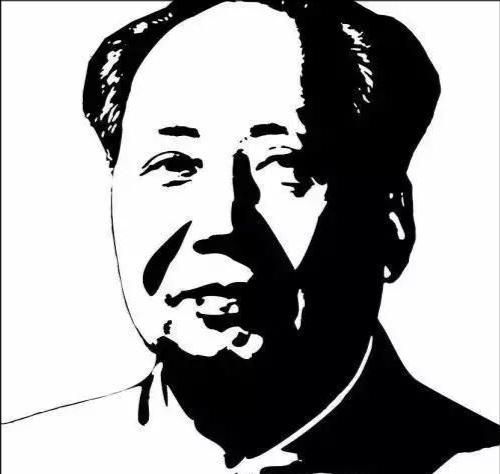We read all the lead to present a different history.
One
The first criterion for evaluating a great man who has never been seen before or who has never come after him is that he has made great contributions to the Chinese nation, turned the tide at the moment of historical crisis, and promoted the progress of Chinese society. Such a person is definitely a dragon and phoenix among people, a rare figure in a hundred years. They use their great insight and strong execution to change themselves and thus change society.
The second criterion is that it has a very large positive role in promoting China's construction cause, playing an excessively high role in institutional level and top-level design, and its insight and foresight into society are far above most people. They know the root causes of social problems very well and know how to solve them, and the key is to solve them at their roots.

The third criterion is that the team building ability is strong, can select and cultivate a strong core team, and rely on this team to develop through fission, and eventually achieve leapfrog development, and promote the formalization of the entire organization. The result of self-cultivation and family governance is to level the world and stabilize the world, and without a strong team building ability, it is simply impossible to achieve.
The last criterion is to have a frank heart, high ambitions, a clean wind in both sleeves, a heart for the world, not for personal interests, only for the development of China. Only those who have such a heart can be called a great man and the pride of the Chinese nation.
Two
By this standard, and according to most popular Chinese the modern greats chosen in their minds were Mao Zedong, Zhou Enlai, and Deng Xiaoping. The three of them united as one, carried forward the past and forged ahead, laying a solid foundation for the great rejuvenation of the Chinese nation. They are all proletarian revolutionaries of the older generation who have made different contributions to the establishment and development of New China in different periods.
With his stoic character and optimism, Mao Zedong saved the Chinese revolution again and again, and finally realized China's reunification. His exploration of China's construction can be said to be unprecedented and unprecedented, and his merits and deeds are all out of public conscience. For the establishment of new China, his family paid a great price of casualties. The high level of ideology and the greatest political merit are something that others can only look up to.
Zhou Enlai, with his broad mind, the style of hard work and resentment, and his diligent and earnest character, has always silently made great contributions to China's revolution and construction. Compared with others, he has a high-spirited style and does not covet power. He left no property in his lifetime, let alone children. His life is a life of hard work, a life of hard work.
Deng Xiaoping also had a tenacious character and a broad political vision, and at a critical moment in history, he broke through various difficulties and obstacles and resolutely promoted China's reform and opening up. He is very far-sighted and clear about the construction and development of society, always walking in the forefront of society, and is known as the chief designer of China's reform and opening up.
Three
Great people generally refer to people who have performed well and are respected. There are many great figures in Chinese history, from the ancient mythological stories of Pangu to open the world, there are many people in the mythological stories who have been listed as great people, such as Father Quao, Nuwa, The Yellow Emperor and Yao Shunyu, who have made great contributions to the establishment of Chinese culture and the country, and together constitute part of the original Chinese culture, and generations of Chinese have spread their stories.
In China's thousands of years of history, King Wen of Zhou and King Wu of Zhou are well-known greats. Later Qin Emperor Han Wu, Tang Zong Song Zu, and even the Kangxi Emperor of the Qing Dynasty were all known as a generation of great men. However, in later poems, the great men once commented on them like this: The Qin Emperor Han Wu slightly lost literary style, Tang Zong song zu was slightly inferior, a generation of heavenly pride, Genghis Khan, only know how to bend the bow and shoot the big eagle. Of course, compared with modern great men, their achievements are relatively small, but in history, it can be said that they are very large, and they all played a very big role in the social progress of that time.
Chinese, who has been rated as a great man in the world, are Yang Jian, the Sui Wen Emperor who pioneered a generation of systems, King Wen of Zhou, who has high morals, and Cai Lun, who invented papermaking. Others include Hua Tuo, a physician during the Three Kingdoms period, and Mao Zedong, who founded New China. Even the very controversial Sui Dynasty emperor Yang Guang was ranked 82nd. Confucius, Mencius and Lao Tzu were of course also included in the world of great men of thought, and together they created the splendor of Eastern culture.
In the words of Wang Yangming, the great thinker of the Ming Dynasty, everyone can become a sage. The sages here are similar to the great men, of course it is not chicken soup and brainwashing. Here it mainly means that as long as everyone is morally high and behaves correctly, he can become the same person as the sages, mainly referring to the practice of thought and not to merit. Although not everyone can be a great man, they can all look up to them ideologically